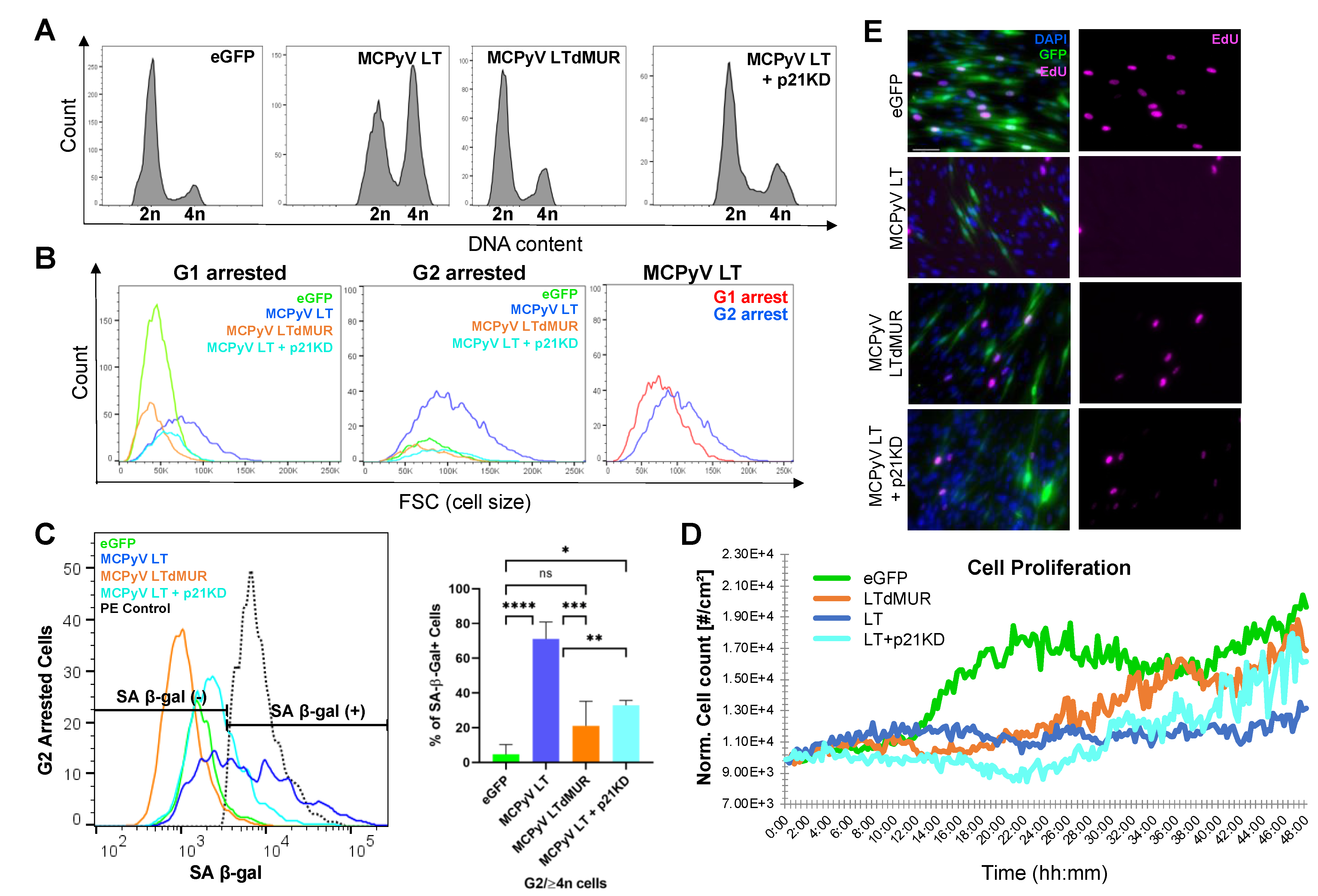Customer Publication

Merkel Cell Polyomavirus Large T Antigen Induces Cellular Senescence for Host Growth Arrest and Viral Genome Persistence through Its Unique Domain
Journal: Cells (2023)
Institution: Pennsylvania State University College of Medicine
Research Areas: Cancer research
Cell Lines: BJ-hTERT, 293FT, HFF-1, BJ (Human fibroblast, human embryonal kidney cells)
Summary: The study aims to investigate the role of cell senescence in Merkel cell polyomavirus (MCPyV) induced Merkel cell carcinoma (MCC). Here, the authors showed that MCPyV large T (LT) antigen expression in human skin fibroblasts causes a novel nucleolar stress response, followed by p21-dependent senescence and senescence-associated secretory phenotypes (SASPs), which are required for MCPyV genome maintenance. Senolytic and navitoclax treatments decrease senescence and MCPyV genome levels, suggesting a potential therapeutic for MCC prevention. The results uncovered the mechanism of a host stress response regulating human polyomavirus genome maintenance in viral persistency, which may lead to targeted intervention for MCC. HoloMonitor M4 was used to study the proliferation between MCPyV LT-expressing cells and their MCPyV disordered MCPyV unique region (MUR) counterparts